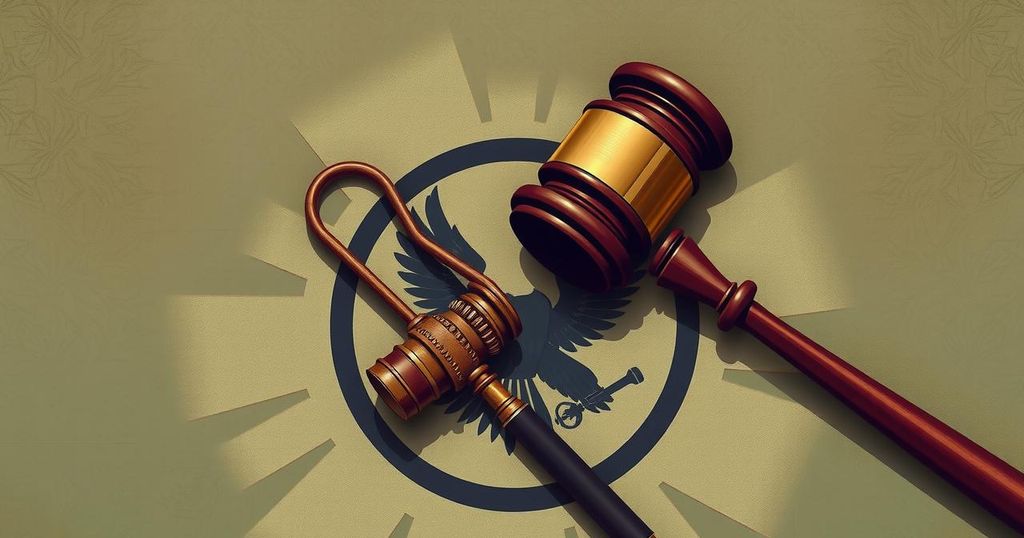Ugandan Lawmakers Pass Bill to Try Civilians in Military Courts Amidst Outcry

Ugandan lawmakers have voted to allow civilians to be tried in military courts, igniting backlash from opponents who fear this threatens democracy. The legislation comes after a Supreme Court ruling limited military jurisdiction over civilians, with critics asserting this move serves only to bolster President Museveni’s power. As the nation approaches the 2026 elections, questions loom over the effects of this bill on civil liberties and potential political succession.
KAMPALA, Uganda – In a controversial move, Ugandan lawmakers have passed a bill that allows for civilians to be tried in military courts. This decision has sparked significant outcry from opposition leaders and various rights activists who argue that it is a blatant regression for democracy. The legislation was pushed through on Tuesday, despite ongoing criticisms from those concerned about its implications for civil liberties.
This contentious bill originated earlier this year in response to a Supreme Court ruling, which stated that civilians could not be court-martialed. Critics pointed out the court’s decision questioned the ability of military personnel, who often lack legal training, to deliver fair justice. Under the new legislation, civilians can face military trials if their alleged offenses are connected to military personnel. However, the bill does stipulate that presiding officers in these trials must have legal qualifications.
Opponents of the bill are raising alarms, especially with the 2026 elections looming. They view this legislation as a political maneuver aimed at suppressing dissent against President Yoweri Museveni, who has ruled Uganda since 1986. Activists believe that the bill poses threats not only to political opponents but ultimately to democracy itself. In a demonstration of their disapproval, several opposition members exited the parliamentary chamber prior to the vote.
The rights group Chapter Four condemned the bill, asserting it attempts to “unconstitutionally grant judicial powers reserved for superior courts to subordinate military courts that have specialized jurisdiction to handle only military disciplinary offenses.” Museveni, who criticized the Supreme Court’s ruling, is expected to sign this new legislation into law shortly. He has publicly declared, “the country is not governed by the judges.”
As Uganda’s political climate heats up ahead of the January 2026 elections, the question of succession remains unclear. Many speculate that the aging Museveni may eventually step down for his son, General Muhoozi Kainerugaba, who has expressed his ambition to take the presidency. This potential transition raises concerns about what a shift in leadership might mean for Uganda’s future.
In a related note, long-time opposition figure Kizza Besigye remains imprisoned on what his lawyers argue are politically motivated treason charges. Besigye, a former military colonel and the head of the Forum for Democratic Change, embodies the persistent struggle for a robust opposition in a nation that has never successfully transitioned power peacefully since achieving independence in 1962.
The passage of this bill marks a critical point in Uganda’s complex political landscape, one that may have lasting ramifications beyond the immediate future, particularly surrounding issues of civic freedoms and rights in the lead-up to the elections.
In summary, the approval of the bill allowing military trials for civilians in Uganda raises significant concerns about the erosion of democratic principles and civil rights. Critics argue this legislative move is a strategic effort by President Museveni to suppress dissent ahead of the 2026 elections. As the nation faces uncertainty regarding political succession, the opposition’s challenges, evident in figures like Kizza Besigye, emphasize the ongoing struggle for democratization in Uganda, where peaceful power transfers remain elusive.
Original Source: www.newsday.com







